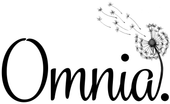Safety Standards & Quality Checks
We know that your precious little ones deserve only the very best, that's why each of our products has been carefully and thoroughly safety checked and made from only the highest quality safe material. Our products comply with European Standard and have the status of British Standard of Safety. Our products have gone through a general safety test and comply with the EN71-part 1 and 3 by a UKAS accredited independent test house.
Omnia Baby silicone products are all made from 100% high grade food safe silicone which is tested to LFGB EU standards. LFGB silicone is the highest quality silicone available on the market, with more rigorous testing standards. Our silicone is both LFGB EU and FDA approved. Our silicone products have been tested by a UKAS accredited independent test house and pass all test. They are completely non-toxic and do not contain any harmful chemicals such as; BPA, Lead, Phthalates, Mercury, PVC or Latex.
When tested by the independent test house for the migration of certain elements they do not exceed the limit of the European Standard EN 71-3:2013+A3:2018.
The German Food, Articles of Daily Use and Feed Code of September 1, 2005 (LFGB), Section 30 & 31 with amendments and BfR recommendation - which includes testing:
- Extractable Components - PASS.
- Sensorial Examination Odour and Taste Test - PASS.
- Lead and Cadmium - PASS.
- Volatile Organic Matter - PASS.
- Polycyclic Aromatic Hydocarbons (PAHs) Content - PASS.
Our Safety Standards of Testing:
BS EN 14372:2004 - Child use and care articles -
Cutlery and feeding utensils - Safety requirements and test methods
All of our products comply with BS EN 14372:2004 safety requirements – the most rigorous European safety standard for infant’s cutlery and feeding utensils. Our products have been tested for physical safety and chemical migration and are certified as safe for use by children of up to 36 months of age. Our products have been checked that there are no sharp elements, that there are not parts which could snap off and cause harm and that the material they are made from is safe and does not contain any harmful substances.
BS EN 14350:2020 - Child care articles -
Drinking equipment. Safety requirements and test methods
All our products comply with BS EN 1350:2020 safety requirements - relating to drinking equipment intended for children of 0 to 48 months of age. Our products have been checked that there are no sharp elements, that there are not parts which could snap off and cause harm and that the material they are made from is safe and does not contain any harmful substances.
OEKO-TEX® Class 1 Safety Standard
STANDARD 100 by OEKO-TEX® is a globally standardised, independent testing and certification system for textile raw materials, intermediate & end products of all processing stages and accessory materials used.
We are very proud to provide our waterproof fabric bibs that are Standard 100 OEKO-TEX Class 1 (Articles for babies and toddlers) Safety Standard accredited.
The strict testing tests for harmful substances and the comprehensive catalog of measures of STANDARD 100 by OEKO-TEX® includes:
- Important legal regulations such as banned azo colorants, pentachlorophenol, cadmium, lead (US-CPSIA), etc.
- Numerous harmful chemicals, even if they are not yet regulated legally.
- Numerous substance classes that are relevant to the environment.
- Limit values of Annexxes XVII and XIV of the REACH Regulation and relevant substances of the ECHA-SVHC-candidate list.
Safety Instruction for use:
Before purchasing any of our products please read our Care Instructions and take note of the information for safe use of our products as well as our methods of cleaning. We recommend before first use, you clean the product and inspect it. Throw away at the first sign of any damage or weakness. We give warning that you should always use our products with adult supervision and never leave your child unattended with our products. If using our utensils, cups or bowls/plates ensure that you always check the food temperature before feeding.

